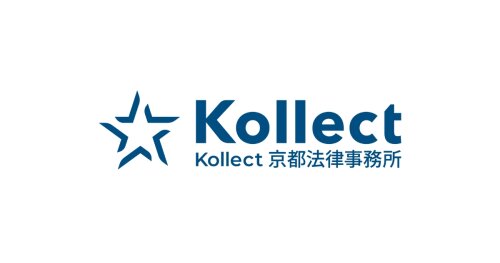Best ADR Mediation & Arbitration Lawyers in Kyoto
Share your needs with us, get contacted by law firms.
Free. Takes 2 min.
List of the best lawyers in Kyoto, Japan
About ADR Mediation & Arbitration Law in Kyoto, Japan
Alternative Dispute Resolution (ADR) encompasses a variety of processes, including mediation and arbitration, which are used to resolve disputes outside the traditional court system. In Kyoto, as in the rest of Japan, ADR has been increasingly recognized as a valuable means of settling disputes in a more efficient and cost-effective manner. Mediation, known as chotei in Japanese, is a voluntary process where a neutral third party helps disputants reach an amicable settlement. Arbitration, or arbitore-shon, involves a more formal process where a private judge or a panel makes a decision that is usually binding on the parties.
Why You May Need a Lawyer
Individuals or businesses might seek legal representation in ADR for various reasons, including drafting ADR clauses in contracts, ensuring that the ADR process is followed correctly, representing clients during mediation or arbitration sessions, or enforcing or challenging arbitration awards. Legal expertise is particularly crucial in complex cases that involve substantial assets, international parties, or intricate legal issues.
Local Laws Overview
ADR in Kyoto is regulated by both domestic laws and international agreements, should the dispute involve foreign entities. The Arbitration Law, based on the UNCITRAL Model Law, governs arbitration proceedings in Japan. Mediation does not have a dedicated statutory framework but is informed by several provisions in Japanese law and by the rules of specific mediation institutions. It is also important to note that Japan has ratified the Convention on the Recognition and Enforcement of Foreign Arbitral Awards (the New York Convention), ensuring international arbitration awards are recognized and enforceable.
Frequently Asked Questions
What is the main difference between mediation and arbitration?
Mediation is a collaborative process aimed at reaching a mutually acceptable settlement, whereas arbitration is an adversarial process that culminates in a decision by an arbitrator that can be legally binding.
Is the outcome of a mediation binding in Kyoto?
Not inherently. Mediation agreements only become binding when both parties consent to the terms of settlement and sign a written agreement. Lawyers can help ensure the enforceability of these settlements.
Can international commercial disputes be resolved by ADR in Kyoto?
Yes, Kyoto can be the venue for ADR in international commercial disputes, as Japanese arbitration law is compliant with international standards.
How do I choose between mediation and arbitration?
The choice depends on many factors, including the desire for a binding resolution, control over the outcome, confidentiality considerations, and cost. A lawyer experienced in ADR can provide guidance on the most appropriate method for your situation.
How long does the arbitration process usually take in Kyoto?
The length of arbitration can vary greatly depending on the complexity of the case, but it is generally faster than court litigation. Proceedings often last from several months to over a year.
Can Kyoto’s courts intervene in an arbitration?
Japanese courts can intervene in limited situations, such as in the appointment of arbitrators or enforcement of awards, but they generally respect the autonomy of the arbitration process.
Are there any specialized ADR institutions in Kyoto?
While there may not be institutions specific only to Kyoto, Japan has several reputable ADR organizations that handle disputes throughout the country, such as the Japan Commercial Arbitration Association (JCAA).
Is it possible to appeal an arbitration award?
Generally, arbitration awards are final and binding with very limited grounds for appeal, such as fraud or a violation of public policy.
What types of disputes are typically resolved through ADR in Kyoto?
Common disputes include commercial transactions, real estate, family business successions, labor disputes, and other civil matters.
Are mediation sessions confidential in Kyoto?
Mediation sessions are typically confidential, with details of the discussions and any settlement not disclosed to outside parties without the agreement of both sides.
Additional Resources
Individuals seeking assistance with ADR in Kyoto may consult the Japan Commercial Arbitration Association (JCAA) for resources related to arbitration. For mediation, the Japan Association for Arbitration & ADR is a useful contact. Additionally, the Ministry of Justice provides information concerning ADR procedures and regulations in Japan.
Next Steps
If you are in need of legal assistance with ADR mediation or arbitration in Kyoto, the first step is to consult with an attorney specialized in ADR. They will help evaluate your case, advise you on the best course of action, and represent your interests effectively throughout the ADR process. For international disputes, it is important to engage a legal professional with experience in cross-border issues and knowledge of the relevant international laws and conventions.
Lawzana helps you find the best lawyers and law firms in Kyoto through a curated and pre-screened list of qualified legal professionals. Our platform offers rankings and detailed profiles of attorneys and law firms, allowing you to compare based on practice areas, including ADR Mediation & Arbitration , experience, and client feedback.
Each profile includes a description of the firm's areas of practice, client reviews, team members and partners, year of establishment, spoken languages, office locations, contact information, social media presence, and any published articles or resources. Most firms on our platform speak English and are experienced in both local and international legal matters.
Get a quote from top-rated law firms in Kyoto, Japan — quickly, securely, and without unnecessary hassle.
Disclaimer:
The information provided on this page is for general informational purposes only and does not constitute legal advice. While we strive to ensure the accuracy and relevance of the content, legal information may change over time, and interpretations of the law can vary. You should always consult with a qualified legal professional for advice specific to your situation.
We disclaim all liability for actions taken or not taken based on the content of this page. If you believe any information is incorrect or outdated, please contact us, and we will review and update it where appropriate.









